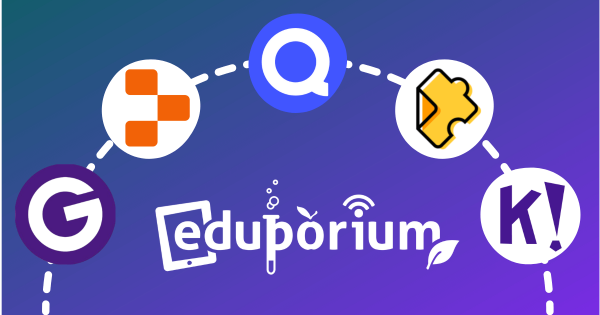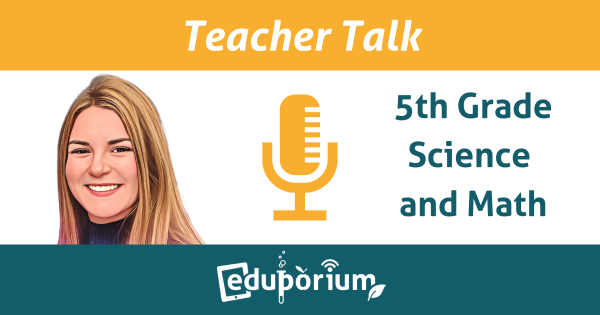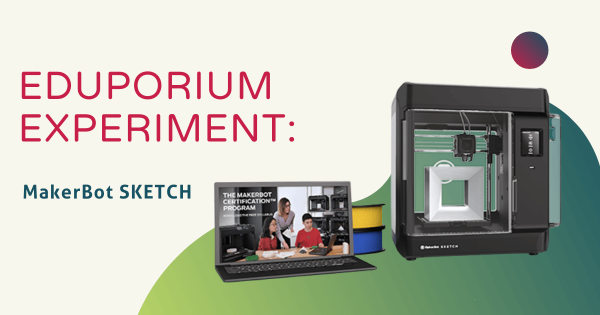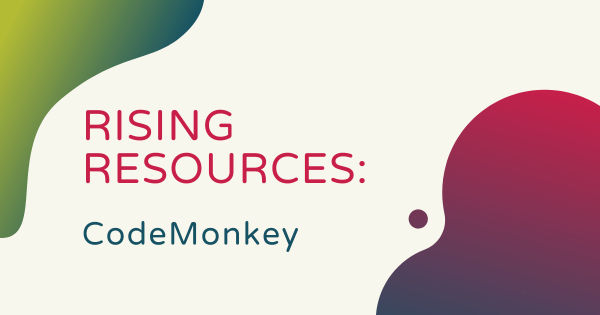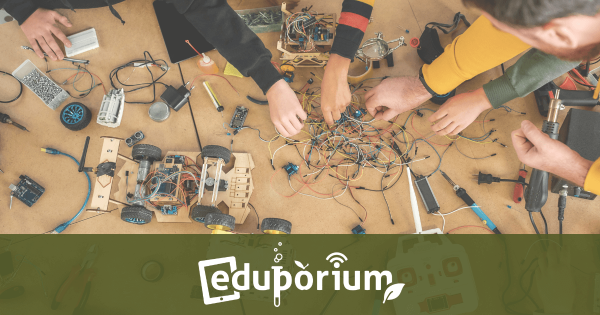As education evolves, so do the methods of enriching students’ classroom experiences. For example, gamifying learning can help boost engagement, coding prepares students for the future, and multimedia tools help enliven instruction. Plus, they all challenge kids to apply what they’ve learned. So, we compiled the best supplementary websites for your teaching toolbox.
Admin
-
Teacher Talk | 5th Grade Science And Math With Lisa Blais
We’re kicking off our new Teacher Talk blog series by sharing this interview with Lisa Blais, a fifth grade science and math teacher in the Boston Public School system. Lisa has plenty of awesome insights on the accessibility of STEAM education, how she enhances activities she uses in her classroom, and how learning in the science subjects can help kids -
Eduporium Experiment | Trying MakerBot SKETCH Classroom
The MakerBot SKETCH Classroom solution comes with lots of 3D printing materials and curriculum resources that help teachers effectively integrate 3D printing lessons in their schools. Most notably, it includes two compact MakerBot SKETCH 3D printers, access to MakerBot’s CloudPrint platform, MakerBot certification licenses, and over 600 makerspace lesson plans. -
Our Top Eight STEAM Picks For Theater Classes
Integrating the arts with elements of science, technology, engineering, and mathematics often means that students can access more opportunities to think creatively and discover their passions. As STEAM solutions become increasingly prevalent in schools, including in arts and humanities classes, we’ve pinpointed eight of the most helpful tools for your theater students. -
Eduporium Experiment | MakerEd With The Glowforge Plus And Pro
Whether they prefer the Glowforge Pro or the Glowforge Plus laser printer, students can quickly translate digital designs into tangible inventions while bringing their ideas to life. They could print on paper, fabric, hardwood, tile, metal, glass, leather, plywood, cardboard, or even food using these unique machines and the large library of classroom-friendly Glowforge projects. -
Rising Resources | Code In Any Context With CodeMonkey
CodeMonkey is a super dynamic platform for kids, parents, and educators who have any amount of prior programming experience to develop critical coding and STEM skills. With interactive games on a variety of relevant CS topics, a wealth of teaching resources, and its cool program-sharing social feature, CodeMonkey makes the perfect addition to any STEM classroom. -
Integrating An Entrepreneurial Mindset In STEAM Education
Summarized as “a growth-oriented perspective through which individuals promote flexibility, creativity, innovation, and renewal,” the entrepreneurial mindset means believing in the possibility of improvement. While research continues to show benefits associated with this kind of learning, more and more educators are implementing it. But, what exactly does this mean? -
Tips & Tricks | The Glowforge 3D Laser Printers
The Glowforge 3D laser printers are some of the most capable high school STEM solutions we offer. Using these machines, kids easily create tangible designs from tons of different materials and each one helps CTE educators unlock truly future-focused instruction in makerspaces or classrooms. And, they’re quicker than 3D printers with lasers that cut and engrave rapidly. -
Tips & Tricks | Mayku FormBox Vacuum Former
The Mayku FormBox is a largely ready-to-use STEM solution with (almost) everything that students need to start manufacturing their own molds. The pack comes with the FormBox, Mayku Cast sheets, Mayku Form sheets, a power cord, a first making kit, a suction tube, and even a universal vacuum connector. They just need a vacuum tube and we have all the -
Tips & Tricks | The Edison Robot EdCreate Expansion Kit
The EdCreate Expansion Kit for enhancing Edison Robot STEAM projects helps students focus on construction with its 115 building parts, including blocks, gears, wheels, pegs, and more that are each compatible with both the Edison and LEGOs. The kit also includes classroom project guides and instructional videos that show students how to construct the five EdBuilds.



